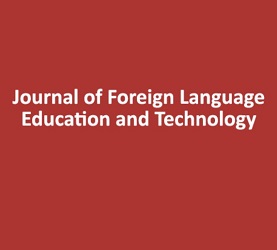Music to My Ears: Using an Educational Music Game to Improve Kanji Stroke Knowledge
Music to My Ears: Using an Educational Music Game to Improve Kanji Stroke Knowledge
Author(s): Jacob TaylorSubject(s): Foreign languages learning, Music, Language acquisition, Cognitive linguistics
Published by: Uludağ Üniversitesi - Eğitim Fakültesi
Keywords: Music; Educational Music Game; Knowledge;
Summary/Abstract: In general, a large number of people are learning unknown dialects with logographic composing frameworks, such as Japanese or Chinese. For those coming from alphabetic backgrounds, learning a large number of characters necessary for proficiency in those dialects is a fascinating challenge, and maintaining motivation despite such a significant undertaking is a battle for some understudies. For this reason, there are many games, but few proposition creation memory practises like composition, and by far the majority are not so subtle cheat sheets. To fill this void, we created Radical Tunes, a melodic kanji-composing game that combines creation practise with a melodic mental aid by assigning a tune to each of a person's components. We chose music as an important asset that can be used to improve learning and memory. In this paper, we investigate whether incorporating songs into a kanji learning game can have a significant impact on the retention of the stroke request/bearing and overall state of a few Japanese characters, similar to the mental helper effect of including music in a message. In particular, we directed two test review, finding that (1) Music enhanced submersion, a significant learning variable; and (2) there was a positive correlation between tune presence and character creation, particularly for more enigmatic characters.
Journal: Journal of Foreign Language Education and Technology
- Issue Year: 6/2021
- Issue No: 4
- Page Range: 1-2
- Page Count: 2
- Language: English

